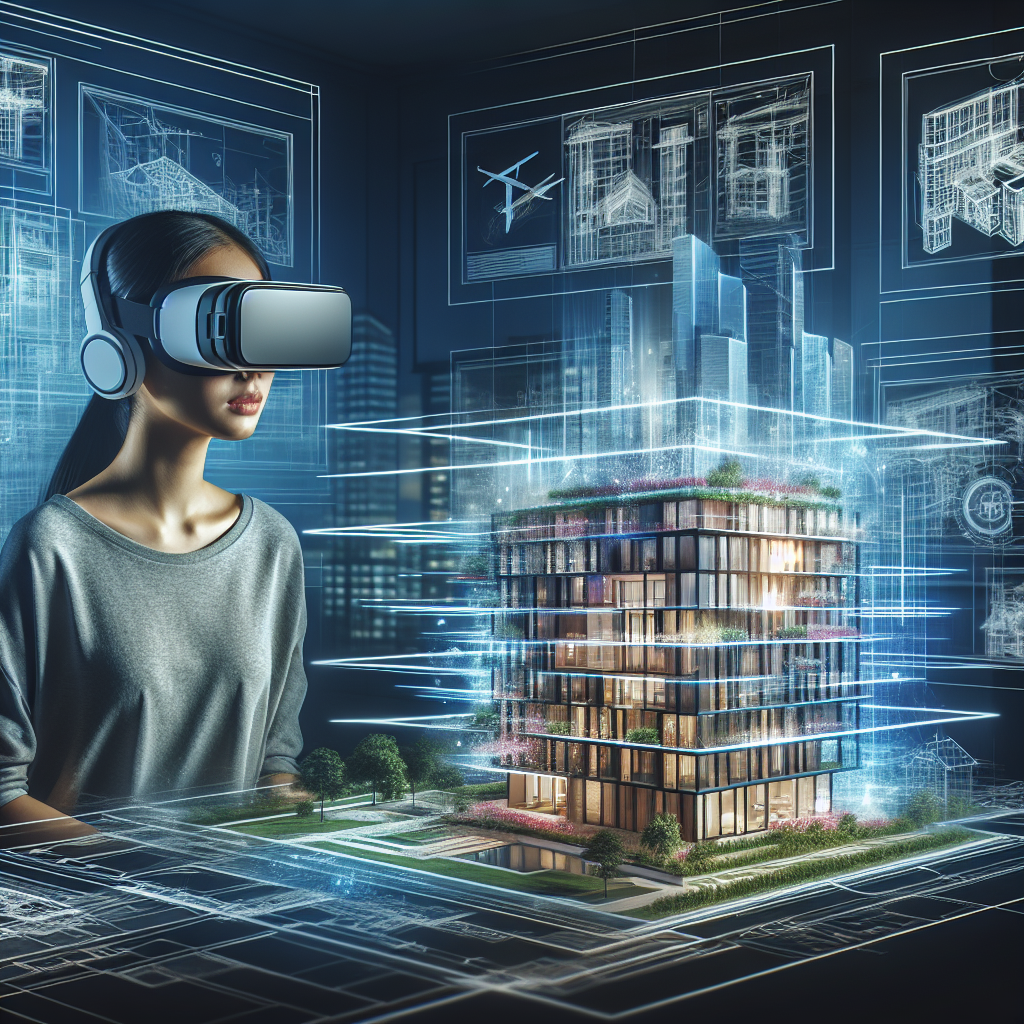Virtual Reality Revolutionizes Real Estate: How VR is Changing the Game of Visualization
The real estate industry is constantly evolving, with new technologies and trends shaping the way we buy, sell, and showcase real estate properties. One of the most exciting developments in recent years is the integration of virtual reality (VR) technology in the real estate sector. Virtual reality has revolutionized the way properties are marketed, viewed, and sold, providing a more immersive and interactive experience for buyers and agents alike.
What is Virtual Reality?
Virtual reality is a technology that enables users to experience a computer-generated, three-dimensional environment through the use of headsets or other devices. This immersive experience allows users to explore and interact with a virtual world as if they were actually there, providing a more realistic and engaging experience than traditional 2D photos or videos.
Virtual reality technology has been rapidly advancing in recent years, with more affordable and user-friendly headsets entering the market. This has made VR accessible to a wider range of industries, including real estate, where it is being used to revolutionize the way properties are viewed and marketed.
How VR is Changing the Real Estate Industry
Virtual reality has had a profound impact on the real estate industry, transforming the way properties are visualized, marketed, and sold. Here are some ways in which VR is changing the game of visualization in real estate:
1. Immersive Property Tours: One of the most significant benefits of virtual reality in real estate is the ability to provide immersive property tours. Instead of relying on 2D photos or videos, buyers can now virtually walk through a property and explore every room in detail. This allows potential buyers to get a real sense of the space and layout of a property, without needing to physically visit the property.
2. Remote Viewing: Virtual reality also enables buyers to view properties remotely, without the need for in-person visits. This is especially useful for international buyers or those unable to travel to view properties in person. Virtual reality allows buyers to experience a property as if they were actually there, providing a more realistic and engaging viewing experience.
3. Increased Engagement: Virtual reality offers a more engaging and interactive experience for buyers, leading to increased interest and engagement with properties. Buyers can explore a property at their own pace, interacting with different features and aspects of the property. This can help buyers make more informed decisions and feel more confident in their purchasing choices.
4. Better Decision-Making: VR technology also helps buyers make better-informed decisions when it comes to purchasing a property. By providing a more realistic and immersive viewing experience, virtual reality helps buyers visualize themselves living in a property and assess whether it meets their needs and preferences. This can lead to quicker decision-making and more confident purchases.
5. Enhanced Marketing: Virtual reality has also revolutionized the way properties are marketed in the real estate industry. VR tours and experiences are highly engaging and memorable, making properties stand out in a competitive market. Real estate agents can use virtual reality to showcase properties to a wider audience and attract more potential buyers.
Frequently Asked Questions (FAQs)
Q: How does virtual reality technology work in real estate?
A: Virtual reality technology in real estate typically involves using a VR headset or other device to provide an immersive and interactive viewing experience of a property. Users can virtually walk through a property, explore different rooms, and interact with features to get a realistic sense of the space.
Q: Is virtual reality only for high-end properties?
A: Virtual reality technology is becoming more affordable and accessible, making it suitable for properties of all price ranges. Whether it’s a luxury estate or a modest apartment, virtual reality can enhance the visualization and marketing of any property.
Q: Can virtual reality replace in-person property viewings?
A: While virtual reality can provide a realistic and immersive viewing experience, it is not meant to replace in-person viewings entirely. In-person visits are still necessary for buyers to fully experience a property and assess its condition and potential. Virtual reality can complement in-person viewings and provide a more convenient and engaging option for remote buyers.
Q: How can I experience a virtual reality property tour?
A: To experience a virtual reality property tour, you will need a VR headset or compatible device. Many real estate agents and developers offer virtual reality tours of properties on their websites or through virtual reality apps. Simply download the app or visit the website, put on your headset, and start exploring the property in virtual reality.
Q: Is virtual reality technology secure for real estate transactions?
A: Virtual reality technology is secure for real estate transactions, as long as you are using trusted and reputable platforms and apps. It is important to ensure that the virtual reality tour you are experiencing is from a legitimate source and that any personal information shared during the virtual tour is secure and protected.
In conclusion, virtual reality technology is revolutionizing the real estate industry, changing the way properties are visualized, marketed, and sold. With its immersive and interactive capabilities, virtual reality offers buyers a more engaging and realistic viewing experience, leading to better decision-making and increased interest in properties. As virtual reality technology continues to advance, we can expect to see even more exciting innovations in the real estate sector, transforming the way we buy and sell properties.
